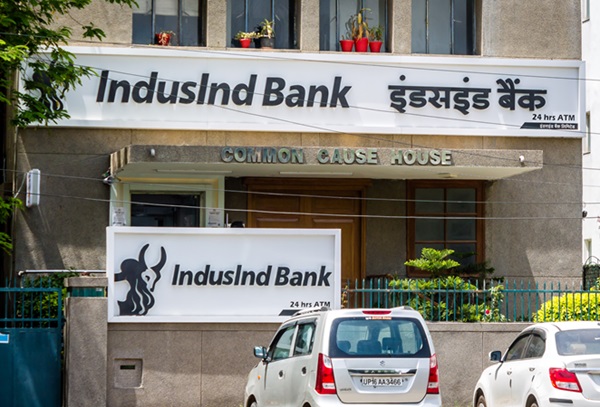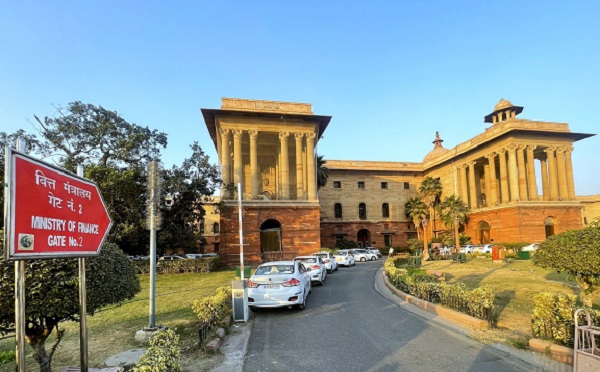.png)

Krishnadevan is Consulting Editor at BasisPoint Insight. He has worked in the equity markets, and been a journalist at ET, AFX News, Reuters TV and Cogencis.
May 29, 2025 at 10:49 AM IST
The IndusInd Bank episode can no longer be dismissed as an isolated lapse. It reflects either a systemic governance breakdown or a troubling culture of apathy and evasion.
It is a credibility crisis. Investors blindsided, the stock price yo-yoing, and the market regulator forced to react. Now, the question is not whether the Securities and Exchange Board of India’s interim order was warranted, but whether the Reserve Bank of India can afford to sit this one out.
At the heart of this crisis is the 15-month-long silence on losses around derivative transactions. Internal emails, flagged by SEBI’s detailed order, show that the bank’s leadership was well aware of the magnitude of the hit as early as November 2023.
Yet, disclosure came only in March 2025, just days before the stock plummeted 27% on the back of the announcement. In the intervening period, key executives assured investors that the bank remained profitable and that the loss was a “one-off,” even as they quietly offloaded shares.
For a bank, trust is capital. And IndusInd Bank squandered it. According to SEBI’s interim order, the red flags were flying as early as September 2023 when the RBI issued its new directions on derivatives accounting. By November, internal teams had pegged the losses at ₹17.49 billion. That number was validated multiple times, first internally and later, externally, by KPMG.
Yet, from December 2023 to March 2025, the bank failed to acknowledge this information as Unpublished Price Sensitive Information, despite multiple internal confirmations that the loss would impact Tier 1 capital and investor sentiment.
In fact, SEBI’s investigation found that the bank formally classified the data as UPSI only on March 4, 2025, just days before the eventual disclosure.
This wasn’t a misunderstanding. It appears deliberate. The SEBI interim order refers to an executive’s email warning that the numbers “were against what we have been telling investors.”
Another exchange mentioned that the bank might need to “go to market early next year” possibly to shore up capital, while simultaneously deciding to hold back the truth.
This delay allowed senior management to exit their stock positions at higher prices. SEBI’s assessment leaves little room for ambiguity. This was insider trading, plain and simple.
And while the trades have drawn headlines, what’s more disturbing is what they imply - that a group of insiders made coordinated decisions not just to downplay the loss but to monetise their knowledge of it.
Either the board looked the other way, or were nonchalant about it.
The silence of IndusInd’s board in the face of repeated warnings and quantified losses amounts to more than negligence. It’s a fundamental failure of fiduciary duty.
The board’s role is to safeguard investor interest, not to serve as a mute spectator to executive deception. By failing to demand timely disclosure, and by allowing its leadership to trade on material non-public information, the board may have effectively endorsed the cover-up.
Which brings us to the RBI.
Regulatory Precedent
Superseding a bank’s board is not a routine tool in the central bank’s kit. But it has been used before. In 2020, the RBI stepped in to replace the board of Yes Bank after governance failures, credit mismanagement, and persistent regulatory non-compliance posed a risk to systemic stability.
IndusInd may not be in the same league of stress. The bank has capital buffers, its deposit base hasn’t evaporated overnight, and there’s no evidence of fraud in its core lending book.
But governance risk is not measured only in NPAs. It is measured in the credibility of the institution, the transparency of its disclosures, and the confidence it commands among depositors and investors. On that front, IndusInd has taken a hard knock.
The RBI has powers to remove or supersede the board of a bank in the public interest. That interest is not triggered only by insolvency or mismanagement of assets. It can also be invoked when a bank's actions undermine public trust in the financial system.
A board overhaul isn’t about punishing a single bank. It is about restoring confidence in regulatory oversight. A decisive move by the RBI would not just clean house at IndusInd; it would reinforce that regulatory silence is not an option when fiduciary norms are trampled.
The central bank need not go nuclear. A prudent first step would be to reassess whether the current board meets the RBI’s “fit-and-proper” norms on oversight.
It can then appoint independent directors with a mandate to tighten disclosure processes and review insider governance frameworks. If deeper rot is uncovered, more drastic action such as a merger, appointment of an administrator, or even temporary suspension of board powers can follow.
Some will argue that such intervention risks unsettling the banking sector.
But what is unsettling is the idea that insider trading is negotiable and disclosure is optional. If executives can suppress losses for five quarters, sell shares at the top, and walk away with a slap on the wrist, it sets a dangerous precedent.
Investors don’t expect perfection and the stock prices it in. But investors do expect accountability. And the job of regulators, both SEBI and the RBI, is to ensure that institutional failure doesn’t masquerade as business as usual.
The RBI doesn’t need to act with fury. But it must act with clarity. IndusInd Bank has crossed a line. Now the regulator must draw one.




